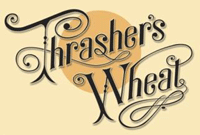Response to the New Yorker Review
Helpless: On the Poetry of Neil Young
October 23, 2012 | by Brian Cullman
[see original post about the The NewYorker review]
There was a fascinating if incomplete musing on theNew Yorker website this week regarding Neil Young’s insularity and on the incomprehensible idea that he never reads. It seemed strange that someone who doesn’t read would decide to write a book, though it’s often true that writing and reading aren’t necessarily two sides of the same coin. They are often very different coins, operating in very different currencies. When you go to a bank to make change, the exchange rate is never in your favor.
I forwarded the piece to my friend Bill Flicker, out in Los Angeles, who wrote back that he never listens to Neil Young’s words, that they are simply placeholders or crumbs that are scattered on a walk through a musical forest. Actually, I do listen to his words. Not always. But when I listen, they’re remarkably visual and evocative:
Blue blue windows behind the stars.
Yellow moon on the rise.
Purple words on a grey background
To be a woman and to be turned down
How did those windows get behind the stars? I don’t know, but I can see them clearly. Sometimes as a child’s drawing. Sometimes as a reflection on an airplane window. There may not be logic involved, but there is something deeper than that. As for those purple words, they shine against the grey background much as Matisse’s goldfish shine through the water they swim in. I can see them clearly reflected on the surface of being turned down. Turned down like a bed, like a stereo, like a deal. A woman turned down. I can see that reflection even if I can’t explain it. If I could, the song might not be as powerful as it is.
What is the color
When black is burned?
What is the color?
I know what that color is but I’m not permitted to say. Joy Williams once wrote that “the children had told her once that the sun was called the sun because the real word for it was too terrible.” She was listening to Neil Young when she wrote that.
Shelter me from the powder
and the finger
Cover me with the thought
that pulled the trigger
Cover me with the thought that pulled the trigger. Not cover me with earth. Not cover me with death. But cover me with the very impulse behind my death. Cover me with the will that I should die, that I should cease. That idea, that line, is worthy of anyone you can name. Anyone. It’s large as the sky. Yet small enough to fit into a song. That’s the terrible beauty of it.
Not all of Neil Young’s songs are as evocative or as powerful. Songs pour out of him at an alarming rate, and for better and for worse they are part of an enormous work that’s still in progress, that keeps expanding. There are songs that seem ungainly or odd, that seem to have their gears showing, but I tend to think of these the way I think about those extra widgets or metal bits that come with a Swiss Army knife. I don’t know why they’re there, but they seem like they’re there for a reason, part of a larger scheme. Sometime much later, when you’re lost in the forest of the night, that useless whatsit might be the only thing that could save your life. You never know.
The elegant simplicity of Young’s songs does not seem manufactured. There’s neither a faux primitivism nor a childlike celebration of the obvious a la, say, the venerable comic strip Nancy. Rather, they combine a child’s focus and need to meet ideas head on with a zen equanimity. The sense of foreboding we feel isn’t necessarily in the songs but in us. These are reports sent back from a place beyond judgement. from a weatherman used to the cold:
Wind blowing through my sails
It feels like I’m gone
See the sky about to rain
broken clouds and rain
Big bird flying across the sky
>>throwing shadows on our eyes
According to Alec Wilkinson, who wrote the New Yorker piece, Young has missed out on “examples of language carrying complicated thoughts or feelings, the way they are carried in the poems of writers such as Philip Levine or William Butler Yeats or the prose of a writer such as Isak Dinesen.” Well, yes. And no.
We’d all be better off for having Philip Levine and W. B.Yeats and Isak Dinesen in our libraries and in our heads. But Neil Young operates in a very different and a very special arena. His songs seem to be both post-literate and preliterate in a powerful and distinctly modern way, leapfrogging over logic and seeming to come straight from the unconscious. Maybe not even his unconscious, more out of a collective yearning or out of some deep and mostly hidden national or international dream state. If swamps or lagoons could hum, they’d probably hum Neil Young songs.
Brian Cullman is a writer and musician living in New York City. He last wrote for the Daily on Nick Drake.
theparisreview.org/blog/2012/10/23/fang-song-on-the-poetry-of-neil-young/
___________________________________
thanks go to dwight c. donovan.








